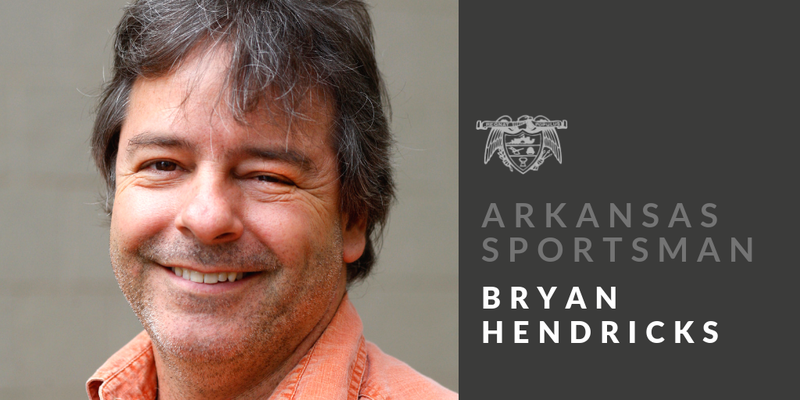On Sept. 23, W.R. "Witt" Stephens Jr., the late Carl Hunter, Harold Glenn, Thad McCollum and Verne Tindall will be inducted into the Arkansas Waterfowler Hall of Fame at Chenal Country Club in Little Rock.
Stephens, who served on the Arkansas Game and Fish Commission from 1993-2000, was the youngest person ever appointed to that post. He was instrumental in helping pass Amendment 75 to the Arkansas Constitution, which enacted a 1/8% statewide sales tax to provide additional funding for the Game and Fish Commission.
An avid duck hunter, Stephens has improved and restored many acres of valuable waterfowl habitat within Arkansas.
Stephens said he hopes visitors to the Waterfowler Hall of Fame will associate his name with Arkansas' continuing tradition of world-class duck hunting.
"I hope they realize how much I appreciate and love the history of duck hunting in Arkansas, and that I tried to help promote that as one of the most special wildlife experiences you can have," Stephens said. "The great migration of ducks from the Prairie Pothole Region to the Deltas and the Grand Prairie culminates in Arkansas and around Stuttgart specifically. I'm in awe of that.
"I'm privileged to live here, and hopefully I have contributed to Arkansas' place in history as one of the greatest venues for the outdoor experience."
Stephens said he also wants to heighten awareness for conserving our green tree reservoirs, which provide vital habitat for migrating waterfowl. Stephens owns prime waterfowl habitat on the Grand Prairie, but he said the vitality of private habitat depends on the health of public areas such as Bayou Meto Wildlife Management Area, which is imperiled because of late-season flooding.
"All duck hunting is special, whether it be in a field, on a river, in a green tree reservoir of whatever," Stephens said. "They are all special experiences, but we are known for Bayou Meto and other green tree areas as being unique to Arkansas for offering that experience.
"The Game and Fish Commission has done a wonderful job explaining the science to the public. There are some sacrifices that need to be made to make up for actions we took when didn't know better, but the future will be brighter because we do."
For perspective, Stephens drove the effort in the 1990s to adopt the three-point rule requiring a legal whitetailed buck to have at least three points on one antler. Hunters resisted the change at first, but they embraced it when the fruits became apparent. Hunters appreciate killing older bucks with bigger bodies and larger antlers.
"Conservationists do not fully exploit. It's the giving back that is so rewarding," Stephens said. "With the deer program, we encouraged the public to make sacrifices today to have better hunting in the future. It paid handsomely. It's the same with duck hunting. The forests will heal themselves quicker than we think, but we have to start by accepting that some things, like flooding regimes, will be different."
Duck hunters rejected that proposition a decade ago. Now, they realize their eyes aren't lying. The woods need relief.
"Definitely," Stephens said. "The visual effects that you can now see in the forest are sobering. Oak trees take a long time to die. It's not really apparent at first. When you only go in there in the wintertime, all trees look bare and dead. People are aware of the threat. There's such a better body of knowledge than when I was on the commission."
Carl Hunter, one of America's preeminent naturalists in his time, was a pioneer in waterfowl management. Working for the late Edgar Queeny, Hunter helped transform Wingmead into one of the world's most legendary hunting properties. He later served as assistant director for the Game and Fish Commission.
Glenn, McCollum and Tindall are recognized for creating in 1936 the World's Championship Duck Calling Contest, America's premier duck-calling competition. The contest was originally a featured event at the Arkansas Rice Festival, which eventually morphed into the Wings Over the Prairie Festival. It is held annually during the Thanksgiving weekend, except for a year's hiatus in 2020 because of the coronavirus pandemic.
The World's Championship Duck Calling Contest attracts callers from around the world and is a major economic driver for the Stuttgart area.

